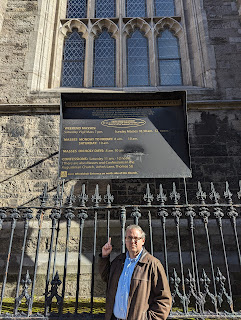In Memoriam: Pope Francis
It is cliche to say that we are products of our environment. Usually this cliche is deployed to talk about the family dynamics, and that's part of it. But it is more than that. We are all formed by the physical locations where we reside, the culture or cultures we live in, the specific events we encounter both directly and in the background of our lives. These elements both provide insight into some aspects of life and hide other aspects or scenarios. Most people to one degree or another work understand these formative elements and try to move beyond them, but I don't think it is possible to do it completely. If you want to understand someone, it is important to understand what elements formed them, because those elements will make their mark on what they do. At the same time, I am becoming increasingly convinced that being a good person is an irreducible, almost existential quality. In particular, I think being a good person is orthogonal to th...
